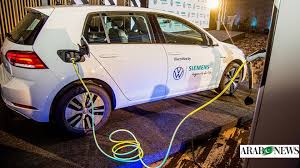By K.A Naqvi
ISLAMABAD: The federal government’s push to introduce a New Energy Vehicle (NEV) Policy, aimed at transitioning Pakistan’s automotive sector toward electric and alternate fuel vehicles, has stirred concerns within the local automotive industry. Critics, particularly from Japanese-dominated auto firms, allege that the policy disproportionately favors BYD, a Chinese electric vehicle (EV) giant, which recently announced plans to enter Pakistan’s market.
The Pakistan Automotive Manufacturers Association (PAMA), representing local Original Equipment Manufacturers (OEMs), has raised alarms over potential market disruptions. In a strongly worded letter to the Engineering Development Board (EDB) — a body under the Ministry of Industries and Production — PAMA warned that the proposed policy could undermine local manufacturers by facilitating low-cost imports of Completely Built Units (CBUs).
Concerns from PAMA
PAMA’s letter highlighted several issues:
• Duty Reductions: The policy proposes slashing duties on imported EVs to 25% and sales tax to 10%, which PAMA argues could erode the local auto industry’s competitiveness.
• Market Impact: It cautioned against creating a “junkyard” of unsupported imported vehicles and advocated restricting imports to companies with local manufacturing capabilities.
• Used Car Imports: PAMA recommended banning used car imports and limiting NEV sales to locally produced models.
Additionally, the association suggested aligning NEV incentives with those for Internal Combustion Engine (ICE) vehicles, phasing out subsidies by 2030, and expanding the NEV definition to include renewable energy vehicles such as biogas-powered cars.
Government’s Vision
Federal Minister for Industries and Production Rana Tanveer Hussain recently unveiled the NEV policy, outlining ambitious goals:
• Achieving a 30% EV market share by 2030.
• Establishing 3,000 EV charging stations along major routes.
• Introducing subsidies for electric motorcycles (PKR 50,000) and three-wheelers (PKR 200,000), with a total allocation of PKR 4 billion.
The policy also aims to reduce consumer financing costs through a 3% KIBOR rate and monthly installment plans as low as PKR 9,000. Licenses for EV manufacturing are underway, with BYD among the firms poised to benefit.
Industry Division
While the government insists that all stakeholders were consulted during the policy formulation, PAMA remains unconvinced. It argues that unregulated imports and reduced duties will stifle local industry growth and disincentivize investment in local manufacturing.
Infrastructure and Incentives
The government has identified 40 sites along the Peshawar-Karachi Motorway for EV charging stations and plans to provide subsidized electricity to ensure affordability. Additional measures include free electric scooters for high-achieving students and reduced duties on EV components to promote local production.
Way Forward
The NEV policy remains open for stakeholder feedback, presenting an opportunity for a balanced approach that supports local industry while fostering the transition to greener technology. However, the debate underscores the challenge of balancing industrial development with sustainability goals in an increasingly competitive global market.
BYD
Chinese electric vehicle (EV) giant BYD has this year announced its plan to enter the Pakistan market and industry. BYD (Build Your Dreams) made the highest number of electric vehicles in 2023 in the world, elbowing out Tesla from the top spot. Its decision to enter Pakistan’s passenger vehicle market is part of a collaboration with local partner Mega Conglomerate Pvt. Ltd. (Mega).


